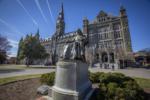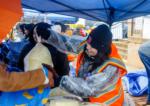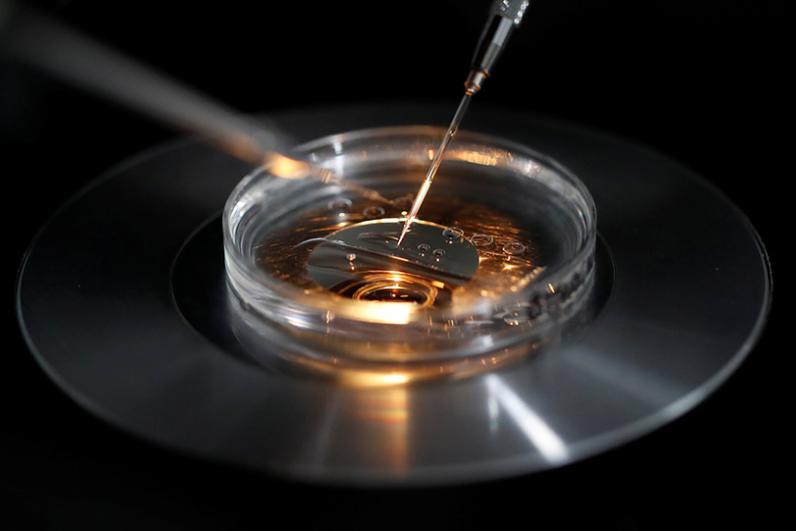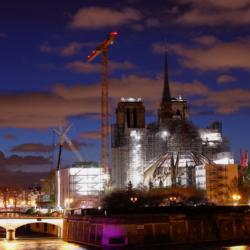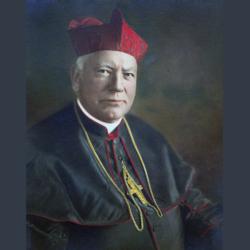A long-awaited spotlight on the IVF and ART industries
The Feb. 16 ruling by the Supreme Court of Alabama, which by an 8-1 margin determined that cryogenically frozen human embryos are considered unborn children under Alabama law, has brought a long-awaited spotlight on the practices, lack of regulation and dearth of ethics in the in vitro fertilization (IVF) and assisted reproductive technology (ART) industries.
The decision on the consolidated appeal by three families -- the official title of which is an unwieldy 98 words -- against the Center for Reproductive Medicine and Mobile Infirmary Medical Center allows their lawsuit to go forward in which they are suing for punitive damages under Alabama's Wrong Death of a Minor Act against the accidental destruction of their frozen embryonic children conceived in vitro.
The ruling brought immediate disruption to the IVF and ART industries in Alabama and raised numerous legal concerns as to whether the businesses and families that decide to destroy or discard human embryos may be liable to punitive damages. Considering the enormous scope of the industries, which bring in $8 billion annually across the country and lead to the manufacture of nearly 100,000 children a year, about one of every 40 kids born, the ruling was a legal earthquake with national reverberations.
Political reactions were swift. The Alabama Attorney General said that he would not prosecute IVF providers or families. The Alabama Governor and the leaders of the Alabama legislature announced efforts to pass legislation to protect the IVF and ART industries. National political leaders from both parties decried the decision and postured their support for IVF in terms of promoting families and children.
But even if the legal impact of the decision may be short-lived, it is the first time that many politicians and citizens are becoming aware of the details of the fertility industrial complex, and it's hard to imagine that, once laws start to be made concerning IVF and ART industries, the laws will be worse than the present situation of no regulation that many from right and left have compared to a lawless "wild west."
The facts of the case give some indication of that present state of lawlessness. Three different couples, after going through IVF cycles, decided to freeze their unimplanted embryonic sons and daughters. In Dec. 2020, a hospital patient was able to wander unsupervised into the obviously unprotected and unmonitored cryogenic nursery where their frozen children and thousands of others were stored. The patient out of curiosity reached in to remove several embryos, received immediate freezer burns and dropped the embryos, destroying them.
Three sets of parents sued the institutions. In the trial court, the suit was dismissed because the judge essentially said that the embryos were considered legally "property" not persons and therefore couldn't be subject to a wrongful death claim. The Supreme Court, based on the Alabama Wrongful Death of a Minor Act as well as an Alabama Constitutional amendment that protects the "sanctity of unborn life and the rights of unborn children," overturned the trial judge's determination and allowed the case to go to trial.
That so little care was taken to guard the frozen human embryos -- such that an eccentric patient in the hospital where the embryonic nursery is located could simply take embryos -- is a shocking enough sign of the state of regulation in the IVF and ART industry.
That parents, whom the present state of the law allows the "right" to conceive children by non-natural means and gives total discretion to implant, freeze or discard them, as if they were just property, would sue under a wrongful death statute -- treating their children as, in fact, children -- manifests the legal and ethical confusions involved.
Since 1978, when the first IVF child, Louise Brown, was born, the Catholic Church has been very clear about the many ethical issues that need to be taken into account. While the Church affirms the humanity of every baby, however conceived, praises the desire for parents to have children, and compassionately recognizes the enormous suffering involved for parents struggling with infertility, the Church stresses that children are always a divine gift, not a right to whom parents are entitled.
The Church has been a voice crying out in the desert about these moral issues, which have become clearer over time:
-- In IVF, children are not begotten but manufactured.
-- Men must masturbate to obtain the sperm for the laboratory insemination.
-- Women are impregnated not by a husband but by a technician with a pipette.
-- Because of the costs and pain involved in egg retrieval, excess embryos are created, with some implanted, some deep frozen, and others eliminated.
-- Pre-implantation genetic diagnosis is often done to discriminate among the embryos based on sex or other qualities.
-- If all implanted embryos take, one or more are often selectively aborted.
-- The process promotes sperm and egg donors and the law often prevents children conceived from ever discovering their biological parents' identity.
-- It allows various doctors to substitute their own sperm and become the father of hundreds of children.
-- It fuels the whole surrogacy industry that exploits poor women and promotes human trafficking.
-- It allows situations where children can be conceived in a circumstance of a half dozen parental claims, from egg mom, sperm dad, surrogate mother, legal (paying) dad(s), legal mom(s) and, with new techniques for the manipulation of eggs, even stranger combinations.
-- It produces what the Vatican has called the "absurd fate" of huge cryogenic orphanages.
-- It permits the development of destructive embryonic research, where human beings are treated as raw material for medical experimentation.
-- And because of its wealth and prominence, it makes far more difficult ethical research to address soluble underlying morphological and endocrinological reasons for infertility.
-- There is, in short, an increasing array of ethical abuses, all fruit produced from morally corrupt IVF roots.
Relatively few have had the courage to confront these issues. No one wants to offend the dignity or hurt the feelings of the 8 million children made through in vitro worldwide. Everyone feels immense compassion for couples struggling with infertility. Yet, now the ART industry is increasingly being employed to manufacture made-to-order children for otherwise fertile couples who prefer to use surrogates, for single women who want to choose sperm donors and sometimes egg donors from catalogs, by same-sex couples and others who look to IVF as option-A not as a reluctant last resort.
The ethical and legal logic of the Alabama Supreme Court decision is simple and clear. It recognizes the humanity of the human embryo and applies the protections that the Alabama law and Constitution say must be given to unborn children.
In response, many are trying to duck the issue of the humanity of the embryo. Abortion supporters are dusting off their exhausted euphemisms to dehumanize the human embryo, recognizing that if the humanity of the embryo is conceded extra utero, it will have enormous consequences for how embryos are treated in utero.
But some pro-life champions who know well the humanity of the human embryo are also ducking the issue, expressing their support for "family values" and "children" without addressing any of the ethical issues involved in freezing and destroying innocent human life, not to mention in the abortion-supporting logic that embryos are the "property" of parents who have absolute legal right to let them live, die, or be put in the freezer.
The Alabama Supreme Court decision, no matter its long-term legal impact, has begun a long overdue conversation. Catholics need to have the courage to speak about it: first internally, since many Catholics, too, have had recourse to IVF and ART either in ignorance or defiance of moral teaching; and then globally, so that, as disciples of the One who said whatever we do to the least of his brothers and sisters we do to him, we may evangelize the wild west with the Gospel of Life.
- Father Landry is a priest of the Diocese of Fall River who is national chaplain to Aid to the Church in Need USA, a Papal Missionary of Mercy and a Missionary of the Eucharist for the US Bishops.





